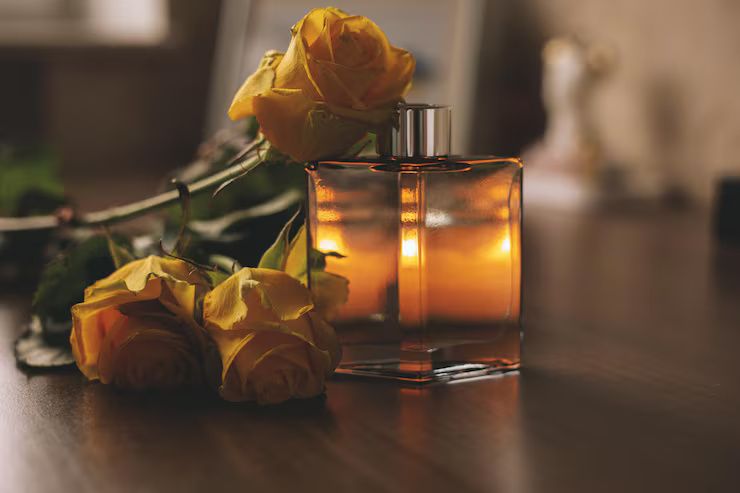Perfume has been part of human culture for thousands of years, with roots in ancient civilizations like Egypt, Mesopotamia, and India. It has long been associated with beauty, ritual, and self-expression. Over time, perfumes evolved from simple blends of natural oils to highly sophisticated compositions created with both natural and synthetic ingredients.
Luxury perfumes occupy a special place within the fragrance industry. Unlike mass-market scents, they often focus on rare ingredients, artistic composition, and the cultural value of olfactory experiences. Women’s luxury fragrances, in particular, have grown into a global sector representing creativity, identity, and lifestyle.
Today, luxury perfumes are not only seen as accessories but also as personal statements that connect memory, mood, and individuality.
Importance: Why luxury perfumes matter today
The importance of luxury perfumes lies in their cultural, social, and personal impact:
-
Personal identity: Perfume plays a role in self-expression, allowing women to choose fragrances that align with personality or mood.
-
Cultural value: Designer fragrances often reflect art, tradition, and heritage, linking the modern perfume industry to centuries-old craftsmanship.
-
Psychological impact: Research in olfactory science shows that scents influence memory, emotion, and perception, making fragrance a subtle but powerful form of communication.
-
Global economy: The women’s luxury fragrance market contributes significantly to the global perfume market, with billions of dollars in annual revenue.
-
Innovation in perfumery: The rise of niche perfumes has expanded the choices beyond mainstream designer labels, offering unique blends for fragrance enthusiasts.
Luxury perfumes solve the problem of uniformity in mass production by providing more distinctive and memorable scent profiles.
Recent updates: Trends and news from 2024–2025
The fragrance industry has seen important shifts in the past two years:
-
Sustainability focus (2024): More brands introduced eco-conscious packaging and responsibly sourced ingredients, responding to consumer demand for ethical luxury.
-
AI in perfumery (2025): Artificial intelligence tools are now used to predict fragrance preferences, optimize formulations, and design personalized scent experiences.
-
Rise of niche perfumes (2024–2025): Independent perfume houses gained popularity for offering limited-edition blends with rare ingredients.
-
Global perfume market growth (2024): Reports showed that the women’s luxury fragrances sector is expected to grow at a CAGR of over 6% through 2030, driven by emerging markets in Asia and the Middle East.
-
Health-conscious perfumes (2025): Fragrance brands have begun creating alcohol-free and hypoallergenic luxury perfumes to meet the needs of sensitive consumers.
Laws or policies: Regulations affecting perfumes
Perfume production and distribution are subject to international and national regulations designed to protect consumer safety and maintain product quality:
-
International Fragrance Association (IFRA): Sets global standards for safe use of fragrance ingredients.
-
EU Cosmetics Regulation (EC 1223/2009): Governs the safety and labeling of perfumes within the European Union.
-
FDA oversight in the United States: While not pre-approving perfumes, the Food and Drug Administration ensures fragrance ingredients meet general safety standards.
-
Allergen labeling requirements: Many regions require clear disclosure of potential allergens in perfumes, such as limonene or linalool.
-
Environmental policies: Governments encourage eco-friendly production methods, such as biodegradable packaging and reduced carbon emissions in the fragrance industry.
These laws protect consumers while supporting sustainable growth in the global perfume market.
Tools and resources: Helpful aids for fragrance lovers
For those interested in learning about or exploring luxury perfumes for women, the following resources can be useful:
Fragrance databases and websites
-
Fragrantica – a large online perfume encyclopedia with reviews and notes breakdown
-
Basenotes – a community-driven platform focused on niche and designer fragrances
-
Perfume Society – offers educational materials and scent guides
Apps for fragrance discovery
-
Perfumist – helps users discover perfumes based on preferred notes
-
Sniph – a fragrance exploration app for building scent collections
-
Scentbird IQ – AI-driven recommendations for luxury perfumes
Educational resources
-
Books such as Perfume: The Alchemy of Scent and The Essence of Perfume
-
Online courses in perfumery offered by institutions in France and Italy
-
Scientific journals focusing on olfactory experience and fragrance chemistry
Sample table of fragrance families commonly used in women’s luxury perfumes
| Fragrance Family | Key Notes | Examples of Use |
|---|---|---|
| Floral | Rose, jasmine, lily | Romantic and timeless scents |
| Oriental | Vanilla, amber, spices | Warm, exotic perfumes |
| Woody | Sandalwood, cedar, patchouli | Elegant, grounded blends |
| Fresh | Citrus, green leaves, aquatic | Light, energizing perfumes |
| Gourmand | Chocolate, caramel, coffee | Sweet, indulgent fragrances |
FAQs: Common questions about luxury perfumes for women
What makes a perfume “luxury”?
Luxury perfumes typically use higher-quality or rare ingredients, refined compositions, and unique branding compared to mass-market fragrances.
Are niche perfumes different from designer fragrances?
Yes. Niche perfumes are often produced by smaller houses focusing on artistic expression, while designer fragrances are created by major fashion brands.
Can perfume ingredients cause allergies?
Some ingredients, both natural and synthetic, may cause reactions. Regulations require labeling of potential allergens to inform consumers.
How long does a luxury perfume last on the skin?
It depends on concentration (eau de parfum, parfum, or eau de toilette) and the skin’s chemistry. Higher concentrations usually last longer.
Is sustainability a growing trend in perfumery?
Yes. Many brands are reducing environmental impact through eco-friendly packaging and ethically sourced raw materials.
Conclusion
Luxury perfumes for women remain an integral part of the global fragrance industry, blending artistry, science, and cultural heritage. Their importance goes beyond fashion, offering unique olfactory experiences that influence identity, memory, and lifestyle.
Recent trends such as sustainability, AI-driven personalization, and the growth of niche perfumes show how the industry is adapting to modern preferences while respecting tradition.
With regulatory frameworks ensuring safety and a growing body of resources available, luxury perfumes continue to evolve as both personal treasures and cultural symbols. For anyone exploring designer fragrances, premium scents, or niche perfumes, this world remains an inspiring intersection of creativity, science, and human emotion.